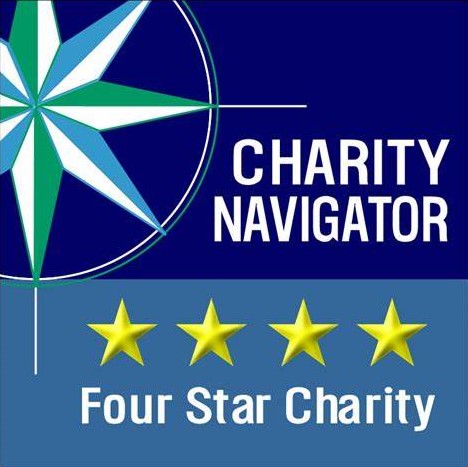CONGRESS TARGETS BIAS AGAINST LIVING ORGAN DONORS
LIVING DONOR PROTECTION ACT SAFEGUARDS JOBS AND INSURANCE
LARGEST KIDNEY PATIENT GROUP MOBILIZES TO BACK CONGRESS
Washington, D.C.: The American Association of Kidney Patients (AAKP), the oldest and largest independent kidney patient organization in the United States, today launched a massive national grassroots and social media campaign in support of the newly introduced Living Donor Protection Act () and the bipartisan Congressional leadership team advancing the legislation. AAKP joined allies across the kidney community in thanking elected leaders for their genuine empathy for organ donors and the tens of thousands of Americans with kidney failure awaiting lifesaving organ transplants.
The Living Donor Protection Act (H.R.2923/S.1384) is being championed by the U.S. House of Representatives bipartisan leadership team of Congressman Jerrold Nadler (D-NY), Congressman Troy Balderson (R-OH), Congresswoman Lisa Blunt Rochester (D-DE), Congressman Jim Costa (D-CA), Congressman John Curtis (R-UT), Congresswoman Diana DeGette (D-CO), Congresswoman Mariannette Miller-Meeks (R-IA), and Congressman Gregory F. Murphy, M.D. (R-NC). They are joined in the U.S. Senate by the bipartisan leadership team of Senator Kirsten Gillibrand (D-NY) and Senator Tom Cotton (R-AR). The legislation reflects consensus language developed by an extensive range of stakeholders including organ donors, kidney patients, the insurance industry, transplant professionals, nephrologists, and many other advocacy organizations and disease professionals.
AAKP President and Chair of the AAKP Veterans Health Initiative Edward V. Hickey, III, USMC, stated, "No human being should be forced to choose between becoming an organ donor to save another life and the real risk of losing current or future life or disability insurance coverage and financial security solely because of their selfless humanitarian act. We thank Congressman Nadler and all bipartisan co-sponsors for responding to the real-world experiences of organ donors, transplant recipients, and patients awaiting a life-saving organ transplant by offering legislation that protects living organ donors and removes a long-standing barrier to greater donation." Hickey is a kidney patient who has also been a caregiver for family members and friends living with kidney diseases and undergoing dialysis. He has served as a senior Congressional aide and an appointee in two presidential administrations, including at the U.S. Department of Commerce.
In 2019, AAKP declared 2020-2030 the Decade of the Kidney™ to advance national and global policy, science, and innovation initiatives aimed at reducing barriers to kidney disease cures while advancing earlier kidney diseases detection and treatment innovations, including artificial organs. A prime objective of this initiative is to increase the availability of organs for transplant and opportunities for transplantation. Since 2018, AAKP has conducted a non-partisan voter registration campaign, KidneyVoter™, designed to engage and mobilize kidney patients, organ donors, families, transplant and nephrology professionals, pharmaceutical and medical device industry employees, investors, researchers, and the public on issues impacting kidney disease, organ transplant policies, and barriers to greater treatment innovations. AAKP has set a goal of 500,000 registered KidneyVoters™ by 2024.
Paul T. Conway, AAKP Chair of Policy and Global Affairs, stated, “Congressional leaders are committed to addressing the shortage of lifesaving organs and the lack of opportunity for transplantation. The Living Donor Protection Act (H.R.2923/S.1384) is a principled solution developed in close coordination with the most impacted stakeholders. During this Decade of the Kidney™, removal of barriers to organ donation and the development of safe innovations, including artificial organs and xenotransplants, are essential so kidney patients can pursue their aspirations and avoid status quo dialysis or premature death.” Conway is a 45-year kidney patient who has lived for 26 years with a kidney transplant. He has served in multiple presidential administrations and is a former Chief of Staff for the U.S. Department of Labor under former Secretary Elaine L. Chao.
Transplantation is considered the best therapy for kidney failure, yet many kidney patients are forced to choose high mortality, status quo dialysis treatments in the absence of a living kidney donor or an available organ. On April 27, 2023, AAKP, the American Society of Transplant Surgeons (ASTS), and the American Society of Transplantation (AST) issued a Statement of Policy Principles and Solutions that must be considered in discussions related to potential changes and improvements to the current transplant system. AAKP, ASTS, and AST shared the statement with the U.S. Congress and the Executive Branch during more than 100 Congressional meetings and multiple briefings.
AAKP, alongside allied kidney organizations, has worked closely with the Congress and across consecutive presidential administrations to secure greater protections for living organ donors. Transplant experts and the larger kidney community, including AAKP, have cited insurance discrimination toward living donors, solely because of their decision to be a donor, as a significant barrier to increased organ donation. Organ donors must meet high medical and psychological fitness criteria, and these standards make them among the healthiest Americans. Despite this fact, ambiguities related to current and future insurance coverage, protections from discrimination, potential rate increases, and potential policy cancellations have led many potential living organ donors to withdraw themselves from consideration to assist a family member, friend, or colleague.
The Living Donor Protection Act (H.R.2923/S.1384) will also codify and expand existing protections for living donors under the Family Medical Leave Act (FMLA). In 2018, AAKP worked closely with the transplant community to secure additional job protections for living organ donors under the FMLA through administrative guidance by the U.S. Department of Labor's Wage and Hour Division. The U.S. Department of Labor determined the original FMLA intent, and the deliberations among Congressional sponsors of FMLA, anticipated protections for organ donors. Click here to read the 2018 DOL FMLA guidance letter, watch OnDemand a 2019 panel discussion regarding the FMLA guidance and history of the living donor legislation, and click here to read AAKP’s 2019 press release in support of the DOL’s issuance of a formal opinion letter regarding the expansion of FMLA to include living organ donors.
More than 30 million Americans are estimated to have kidney disease, and according to the Centers for Disease Control (CDC), 90 percent of patients are unaware that they suffer from the condition. Kidney diseases and kidney failure exact a heavy toll on patients, families, and the American taxpayer, with Medicare costs alone estimated at $120 billion dollars annually. Status quo kidney care is characterized by late disease diagnosis, outdated dialysis technologies, unemployment and dependency on disability income assistance, disparate treatment access, long wait times for organ transplants, and extremely high mortality rates.
###
About the American Association of Kidney Patients (AAKP): In the past decade, AAKP patients have helped gain lifetime transplant drug coverage for kidney transplant recipients (2020); new patient-centered policies via the White House Executive Order on Advancing American Kidney Health (2019); new job protections for living organ donors from the U.S. Department of Labor (2018); and Congressional legislation allowing HIV-positive organ transplants for HIV-positive patients (2013). AAKP virtual platforms and social networks are internationally known for their impact. Follow AAKP on social media at @kidneypatient on Facebook and @kidneypatients on Twitter, and visit www.aakp.org for more information.































